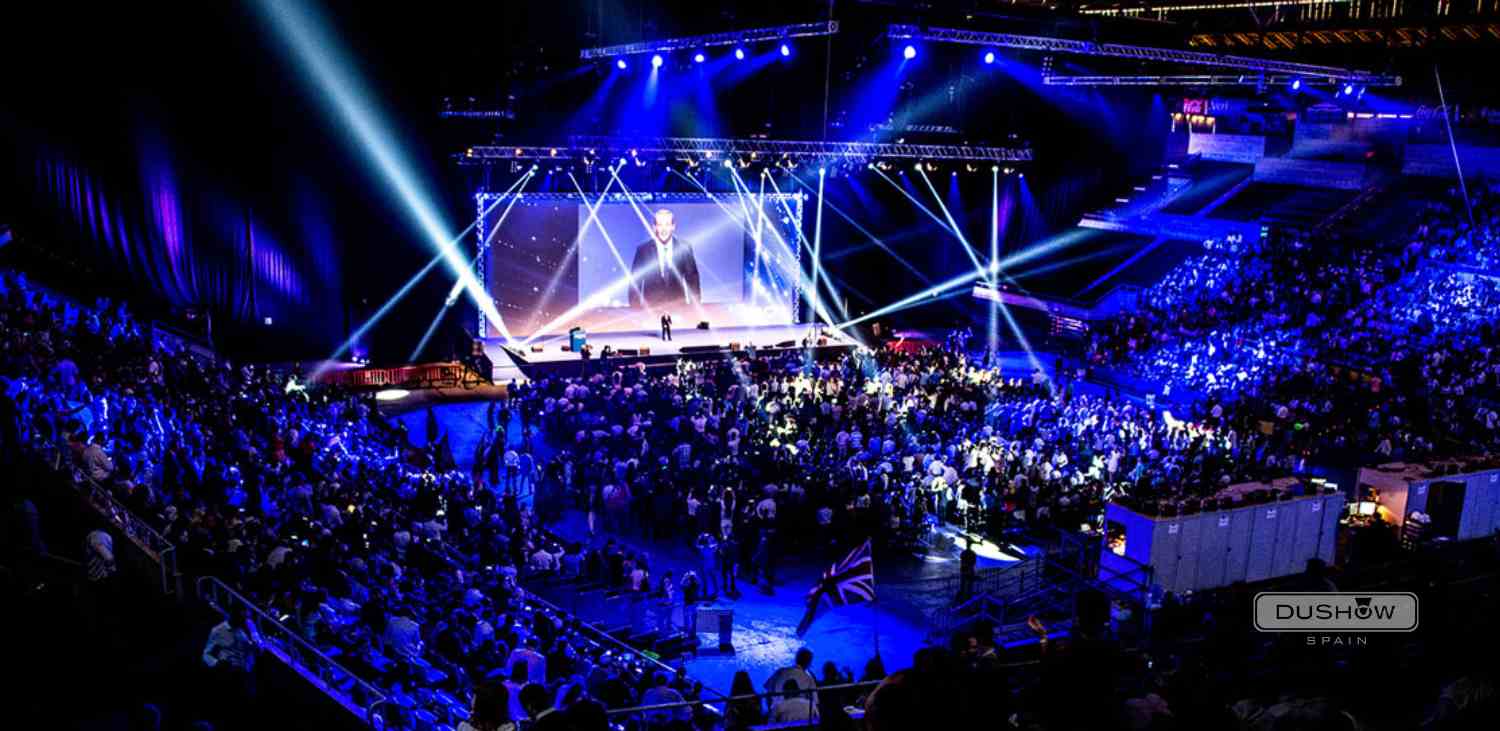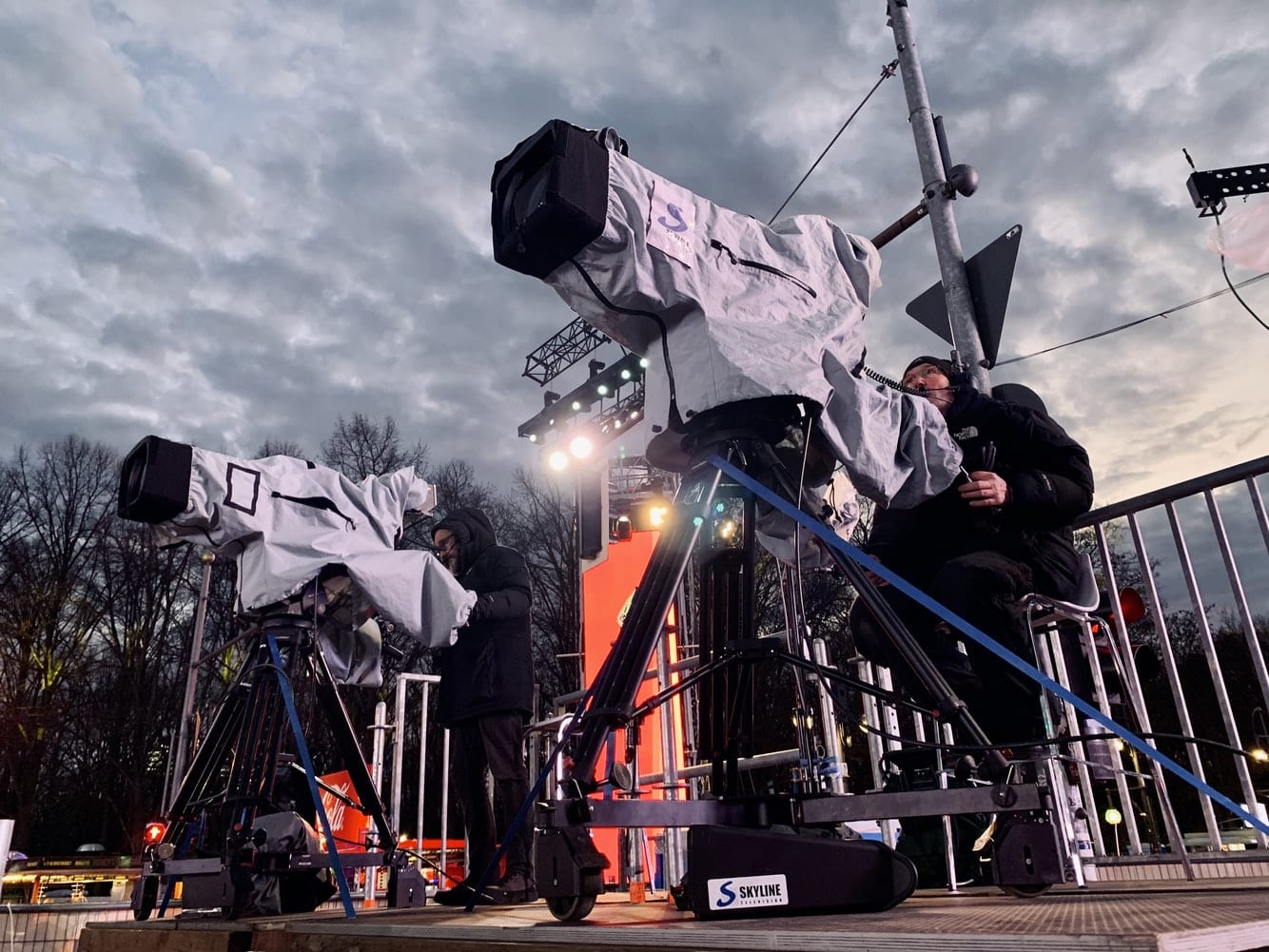How Event Production Works: A Comprehensive Look at the Refine
Event production is a complex and structured procedure that needs cautious preparation and implementation. It starts with establishing clear goals and recognizing the target audience. Each action, from budgeting to place choice, plays a crucial duty in ensuring success. As the process unravels, various aspects have to straighten seamlessly. Yet, the subtleties of this intricate procedure often go unnoticed. What are the essential phases that add to a memorable event?

The Preliminary Preparation Stage
When beginning on event production, cautious preparation is important to assure an effective outcome. The first preparation phase acts as the foundation for all subsequent efforts. During this phase, event producers must specify the event's objective and purposes clearly. Recognizing the target market assists customize the experience and messaging, guaranteeing significance and engagement.Producers should also consider the event layout, whether it be in-person, virtual, or hybrid, as this will certainly influence numerous logistical elements. Picking a suitable day and place is important, as it impacts access and availability.Furthermore, constructing a trusted group is fundamental for separating obligations and improving communication. Establishing a timeline with milestones guarantees all jobs are completed on routine. This phase involves comprehensive research study, including determining prospective challenges and designing strategies to reduce dangers. Eventually, a well-structured first preparation phase establishes the tone for a successful event production journey.

Budgeting and Source Allowance
In event production, reliable budgeting and source allotment are essential for success - event production charlotte. Developing economic parameters sets the structure for all succeeding decisions, while source distribution methods assure that every part of the event is adequately supported. Together, these elements aid keep control over expenditures and optimize using offered sources
Developing Financial Parameters
Establishing financial parameters is important to the success of any kind of event production, as it sets the foundation for efficient budgeting and source allotment. This process starts with defining the total spending plan, which includes all elements of the event, consisting of venue expenses, event catering, and advertising. By recognizing readily available funds, event planners can prioritize expenditures and allot sources as necessary. On top of that, it is important to perform thorough market study to prepare for prospective costs and determine financing sources, such as sponsorships or ticket sales. Establishing clear financial parameters likewise help in risk management, allowing organizers to reserve backup funds for unanticipated expenditures. Eventually, a distinct budget plan functions as a roadmap, guiding the event production group in the direction of attaining their objectives while keeping financial control.
Resource Distribution Techniques
Effective resource distribution techniques are crucial for taking full advantage of the impact of an occasion while sticking to budget plan restraints. Effective event production requires a thorough approach to budgeting and resource allotment. Planners must prioritize essential aspects such as venue, food catering, and technology, making certain that funds are designated to areas that improve guest experience. A detailed spending plan ought to outline expected costs and identify areas for prospective price savings, such as working out with vendors or discovering sponsorship chances. In addition, tracking expenditures throughout the planning process aids prevent overspending. By employing calculated resource circulation, event manufacturers can supply a memorable experience while preserving monetary obligation, eventually adding to the overall success of the event.
Place Option and Logistics
Selecting the right venue is important to the success of any type of event, as it establishes the phase for the overall experience. Place choice involves assessing different variables, consisting of capability, accessibility, and area. Coordinators must think about the target audience and the nature of the event, making sure the location aligns with the event's goals.Logistics play a considerable role in this process, involving plans for seats, audiovisual devices, and catering services. An appropriate place should assist in smooth circulation for attendees and personnel, boosting engagement.Additionally, assessing potential locations for amenities like car parking, toilets, and emergency situation departures is essential for safety and security and ease. The timeline for safeguarding the venue is additionally critical, as popular places may reserve promptly - event production charlotte. Extensive planning and timely implementation can inevitably contribute to a seamless event experience, making venue selection and logistics fundamental components of effective event production.
Creative Principle Development
While the venue sets the physical stage, creative concept development forms the event's identification and narrative. This procedure starts with recognizing the event's function and target market, permitting event manufacturers to formulate a compelling theme that reverberates with attendees. Brainstorming sessions frequently include diverse point of views, promoting cutting-edge ideas that align with the event's goals.Once a style is developed, visual aspects such as color palettes, signage, and style are developed to improve the total ambience. Storytelling techniques might also be integrated to produce an engaging trip for individuals, ensuring a remarkable experience. Furthermore, factors to consider pertaining to home entertainment, activities, and interactive parts are lined up with the selected concept, reinforcing the theme throughout the event.Ultimately, efficient innovative principle growth warranties that every aspect of the event functions cohesively, leaving a long-term impact on attendees and meeting the event's objectives. This foundational job prepares for subsequent preparation and execution phases.
Collaborating With Vendors and Distributors
Successful event production depends upon efficient collaboration with vendors and distributors. Picking reputable companions, negotiating contracts effectively, and ensuring prompt deliveries are essential action in this procedure. Each of these variables contributes substantially to the total success and smooth implementation of an event.
Picking Reliable Partners
How can event organizers guarantee a smooth production experience? Selecting dependable partners is important in accomplishing this goal. Event planners need to perform extensive study to determine suppliers and providers with a tested track record of excellence. This includes inspecting references, evaluating profiles, and examining client responses. Organizers should prioritize partners who demonstrate professionalism and trust, timely communication, and a determination to collaborate. Building solid relationships fosters count on and enables fast problem-solving throughout the event. Additionally, it is helpful to choose neighborhood suppliers that understand the place and regional logistics. Ultimately, an effective event depends upon the harmony between organizers and their companions, ensuring that every facet of production runs efficiently and efficiently.
Bargaining Agreements Efficiently
Effective negotiation of agreements is a crucial action in the partnership in between event planners and their vendors and distributors. This procedure includes clear communication of assumptions, deliverables, and timelines. Organizers should carry out complete research Get the facts study on market prices and sector criteria to establish a baseline for settlements. It is necessary to create a collective atmosphere, motivating open dialogue concerning terms, rates, and potential contingencies. Organizers need to likewise prioritize recognizing the supplier's capabilities and limitations to align their requirements effectively. Adaptability can cause equally beneficial contracts, cultivating long-term partnerships. Crafting well-defined agreements that consist of certain performance metrics can assist ensure responsibility, eventually resulting in effective event implementation and fulfillment for all celebrations included.
Making Sure Timely Shipments
Timely distributions are crucial for the smooth execution of any type of event, requiring attentive cooperation in between coordinators and their suppliers and distributors. Efficient interaction is essential, as it helps develop clear assumptions relating to distribution schedules, quantities, and details demands. Planners frequently create detailed timelines to detail crucial milestones, making sure all celebrations continue to be straightened throughout the procedure. Normal check-ins with vendors can assist recognize prospective hold-ups early, permitting for aggressive services. Furthermore, developing strong connections with trustworthy distributors cultivates count on and liability, which can cause better solution and prioritization. By prioritizing these joint initiatives, planners can lessen interruptions, therefore boosting the overall performance of event production and making certain that all essential products and services show up as prepared.
Marketing and Promo Strategies
While arranging an occasion, the success of advertising and promo methods can substantially influence attendance and engagement. Effective approaches typically include a mix of digital advertising and marketing, conventional marketing, and grassroots outreach. Making use of social media sites systems enables real-time communication and targeted marketing, getting to particular demographics properly. Email advertising projects can further involve potential guests with personalized content and reminders.Collaborations with influencers or industry leaders can also enhance trustworthiness and broaden reach. Developing engaging web content, such as video clips or blogs, assists to create buzz and endure interest leading up to the event. Additionally, leveraging early-bird price cuts and exclusive advantages can incentivize ticket purchases.Promoting via conventional channels, such as posters or regional media, remains relevant, specifically in community-focused occasions. A thorough method that integrates multiple strategies warranties optimum visibility and engagement, inevitably adding to the event's success and the creation of an unforgettable experience for guests.
On-Site Implementation and Management
On-site implementation and management are vital elements that establish the general success of an event. Reliable coordination during the event ensures that all aspects line up with the intended schedule. Event managers manage logistics, consisting of supplier coordination, devices arrangement, and guest services. Checking timelines and attending to any unexpected concerns are fundamental for maintaining a seamless experience.The personnel plays a substantial duty, as skilled workers are liable for various tasks such as enrollment, details dissemination, and technical assistance. Communication among team members is important; it cultivates a collaborative setting and allows fast resolution of challenges.Additionally, safety and security protocols should be followed, guarding the well-being of all participants. Post-event examinations are additionally component of on-site administration, offering understandings for future enhancements. By concentrating on these aspects, event manufacturers can create memorable experiences that satisfy or go beyond participant assumptions while attaining the event's goals.
Often Asked Questions
How Do I Select the Right Event Style?
Picking the appropriate event style involves taking into consideration the target audience, event function, and location. Investigating existing patterns and collecting input from stakeholders can also inspire innovative ideas you can check here that resonate and create a remarkable experience.

What Are Usual Mistakes in Event Production?
Usual errors in event production typically consist of insufficient preparation, bad communication amongst staff member, spending plan mismanagement, ignoring to take into consideration the target market's requirements, and falling short to perform an extensive post-event examination for future improvements.
How Can I Determine Event Success?
To measure event success, one can examine participant contentment, engagement levels, budget plan adherence, and post-event feedback. Key performance signs, such as ticket sales and social media communications, also provide important understandings right into general effectiveness.
What Should I Do if It Moistens the Event Day?
In case of moisten the day, the organizer must implement backup strategies, such as protecting tents or moving activities inside. Communication with guests concerning changes is vital to assure a smooth experience in you can try this out spite of climate challenges.
How Can I Guarantee Guest Interaction During the Event?
